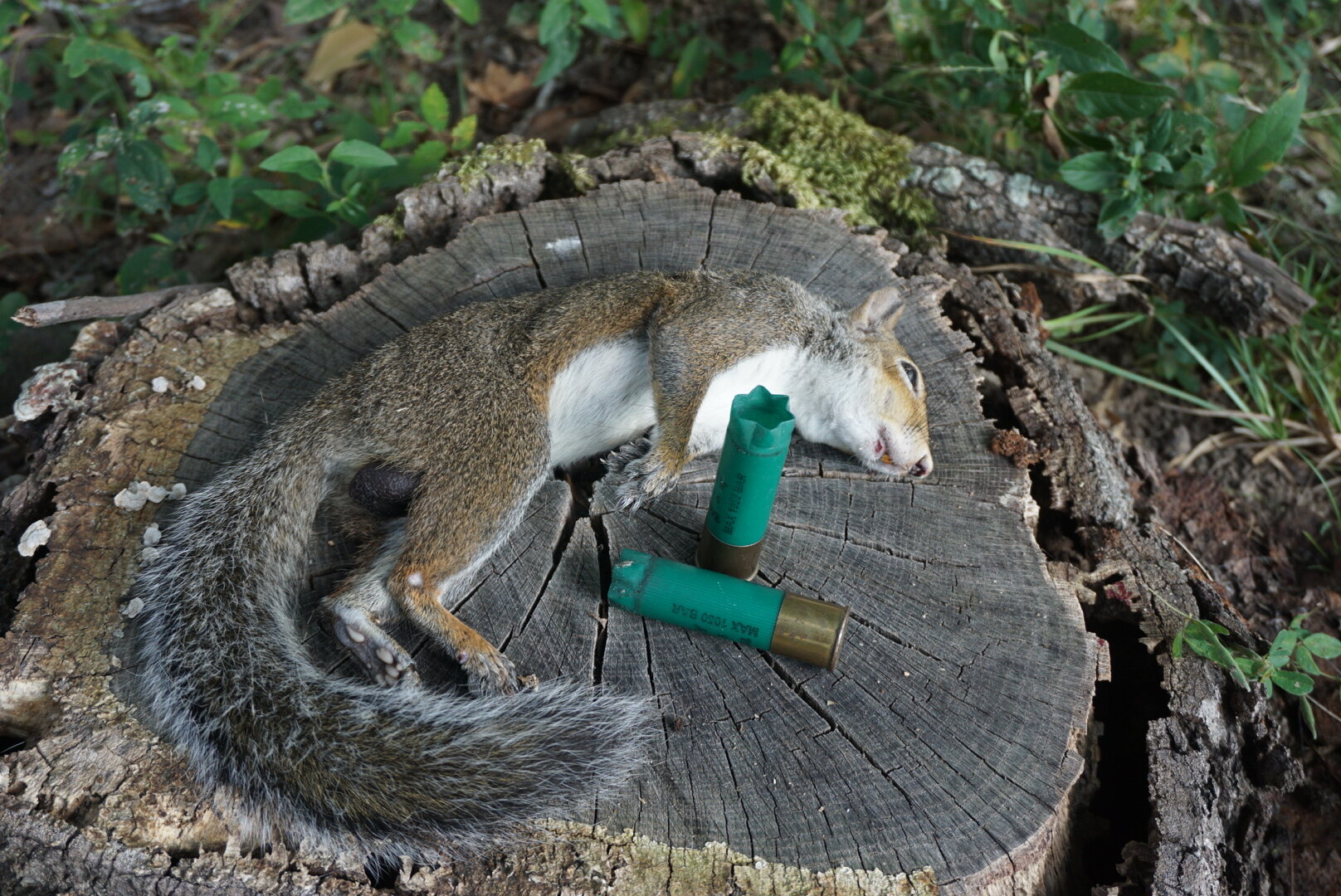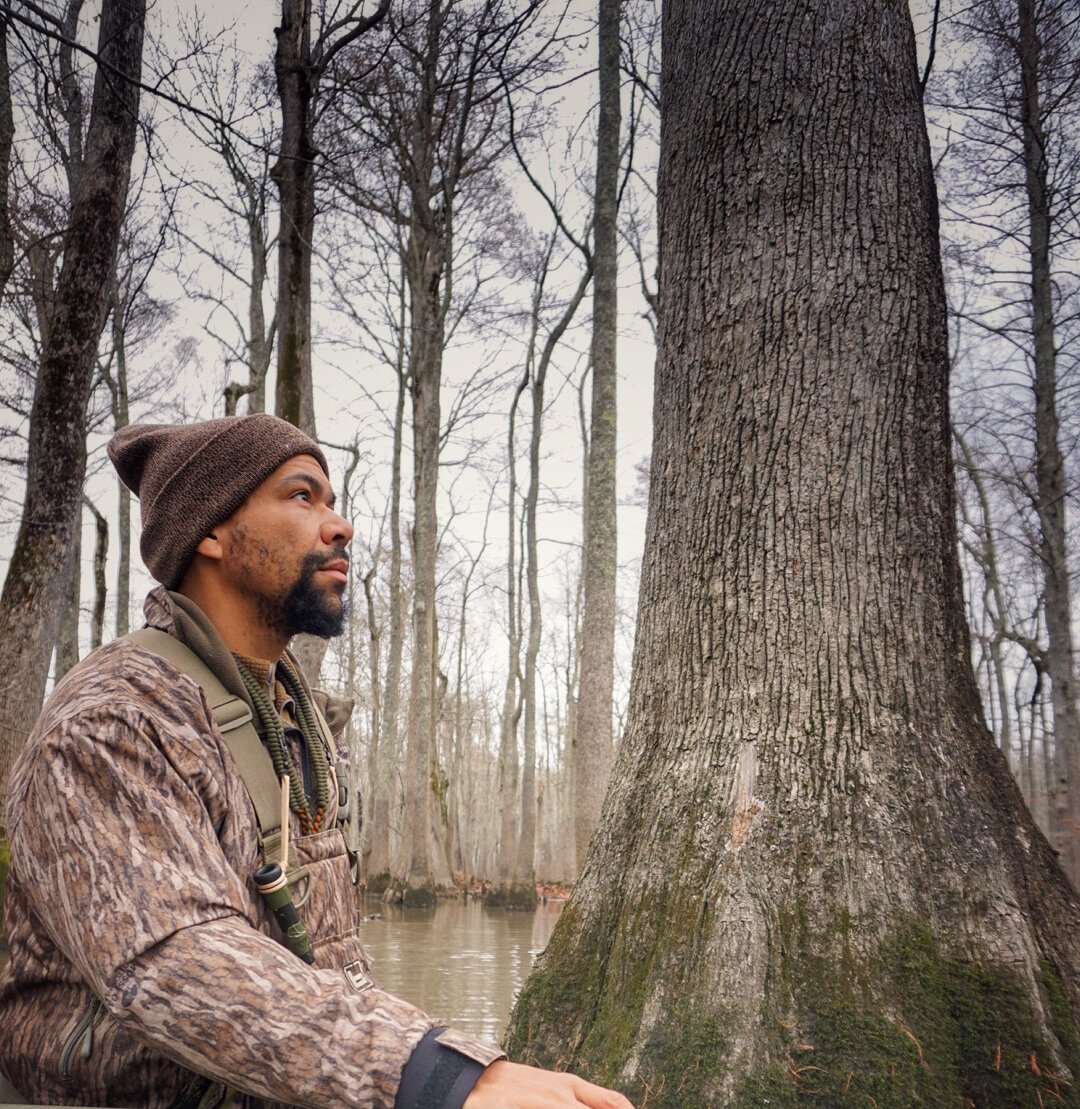Much attention is given to the notion of the “elite white sportsman” vs the “black pot hunter” in your book. Could you explain how white southern society viewed blacks hunting after the civil war. In particular, could you explain how whites viewed blacks hunting, fishing and providing for themselves after the Civil War. How was this seen as a threat to white society and the established social order?
Well the opinion of white Southerners changed dramatically after Emancipation. Hunting and fishing by slaves was often viewed quite positively. It could provide food for farms and plantations (i.e. the plantation huntsman, save money on rations by letting slaves earn part of their own subsistence, or be seen as a way to build good will through granting the privilege of doing those activities. There were some who thought them dangerous activities for slaves due to lack of supervision and especially the highly restricted use of firearms but it seems like many if not most slaveowners allowed some form of the practice.
After emancipation however, the opinion changed dramatically. What was once a way to save money or build good will now became a threat to control of needed labor. African Americans hunting and fishing independently and for their own benefit came to be seen as a way for blacks to avoid working for whites, to find subsistence apart from laboring for others, and a way to flaunt their independence. Seen that way, many former slave owners who once allowed the practice because it was to their benefit now opposed it because it seemed to benefit freed people more. And as the rural South came to become more and more dependent on sharecropping over time, whites wanted African Americans working in the field, not hunting in them.
The emerging idea of “proper sport” also plays into this. In the 19th century, as field sports emerged as more and more popular forms of entertainment, especially for tourists, the idea of “proper” hunting v. “pot hunting” began to really take hold. Elites sneered at those who had to hunt and fish for a living and came to use the idea of a sporting code—i.e. what methods to use, adherence to bag limits, never giving the impression that the product of the hunt was an economic necessity, not selling what you catch, etc—to delegitimize sporting practices of groups they did not like and to reserve sporting privileges for themselves. In the Northeast, sporting enthusiasts attacked immigrants for their supposed bad sportsmanship. In the West, Native Americans were the targets. In the South, former slaves became the archtype of the bad sportsman who was ruining it for everyone else and thus needed to be controlled. So fear of lost control of labor and of independent African Americans making their own living through hunting and fishing dovetailed nicely with emerging sportsmen’s ideas of why we need to regulate hunting and fishing through comprehensive legal restrictions.
You discuss how the institution of socio-political control tactics like Jim Crow and gun ownership laws were largely simultaneous with the creation of many of the laws governing game and fish management. Could you explain how game laws have historically been used as a means to control “non-white” populations?
One of the main goals of the project once it became focused on the postwar period was to determine if there was an obvious connection between fish and game conservation laws and race. It did not take long for me to realize that it was there. Southern legislatures tried to avoid mentioning race explicitly in Jim Crow laws. If you look at the actual statutes, they used coded language. The Poll Tax for example, which was designed to keep blacks from voting by making it cost restrictive, did not apply only to people of color. But white registrars and sheriffs could demand that money from would-be black voters and opt not to collect it from white voters. A similar approach was used with fish and game law. Creating a licensing system that allowed local officials great latitude to decide who did and did not have to purchase, passing exorbitant fines for people found hunting or fishing without a license, imposing firearm taxes, enacting more stringent vagrancy laws, proposing more rigid laws against trespassing, and like measures were not passed with specific racial language but if you read newspaper and magazine articles calling for them, it is clear that it was about controlling black populations. In fact, that was the approach state officials used to get those measures to pass with uneasy poor white voters. “Relax, we aren’t trying to restrict you. It’s former slaves we are after.” This was the approach used to mollify anxious whites in the West, where Native Americans were used as leverage to get the laws passed, and in the Northeast, where immigrants were the preferred target. And though they rarely were explicit about it, it is clear that one of the great benefit of these laws is that they would not only restrict sporting practices for non-native born, non-whites but also would limit their ability to make a living independent of white elites.
In your research did you come across any accounts of how poor whites were negatively affected by the implementation of wildlife management practices that favored the standards of the wealthy.
My research was less focused on poor whites in the South so I didn’t come across a lot of that but it did come up quite a bit. National sporting magazines complained about poor whites as often as they did any other group. In the South, elites who were aggressively seeking to define and restrict sporting practices were probably almost as concerned about poor whites “ruining” Southern hunting and fishing as they were with African Americans. And I strongly suspect once they used the specter of unrestrained black sporting to help pass conservation measures I’m sure they went after poor white sportsmen as well. It was, pardon the pun, killing two birds with one stone as conservation both limited black subsistence activities and devolved control of the sporting field increasingly to sportsmen of means. And poor whites did not accept game regulation measures easily, despite the use of race as a wedge in the debates. The level of violence fish and game wardens encountered, probably most often by angry whites, in the field in the early 20th century makes that very plain.
During your research what was the most surprising aspect of the intersection of race and hunting?
The thing that surprised me the most was how often white sportsmen, both before and after emancipation, would praise the skill level of black sportsmen. I had assumed that all I would find were accounts of how African Americans were poor sportsmen. I certainly did find that but there were also accounts from admiring whites about the skill and daring of black sportsmen. This confused me until I realized that whether blacks were criticized or praised depended on their relationship to whites in the field. As a slave, a black sportsmen hunting or fishing on their own was a lazy shirker who had dangerous mobility and too little oversight. But a slave sportsmen who exercised great skill in bringing food to the master’s storehouses could be heaped with great praise as an extension of the master’s aristocratic standing. And as a free person, a former slave hunting or fishing on their own was an avoider of field work who threatened the racial status quo and reminded whites of the control they had lost when slavery ended. But a free person who worked as a guide or huntsman for white sportsmen and displayed great acumen in the field could be praised as an extension of his employer’s abilities and a reminder that the hierarchical black-white relationship was not dead. The story of former slave, Confederate veteran, and legendary sporting guide Holt Collier is a great example of that. He was regarded as a legend in the sporting community and revered even by white sportsmen, who paid top dollar for his services in the field. He even served as a guide for Teddy Roosevelt on several Southern hunts and was present for the origin of the “Teddy Bear.” He was so revered not only because of his skill but because his long life of service in the field was seen as an extension of the kind of service he once provided as a slave and positive reflection of the kind of master-servant relationship that whites liked to think still lived even after emancipation.
At the end of your book you discuss, in depth, some of the more useful origins of source material that you found. From your descriptions, it seems that it took considerable leg work to gather enough source material on this subject. With the wealth of academic material on the intersection of race with politics, gender constructs, economics, socio-political power etc., why do you think that the subject of race and hunting in the United States has such a low level of academic interests.
I think for a long time studying topics like hunting and fishing were seen as frivolous. Perhaps it was related to a somewhat long-standing bias against studying sporting practices. Academics, especially prior to the 1960s and 1970s, can sometimes be an elitist lot. It probably just wasn’t seen as a serious topic by many in the academy. I got that kind of reaction from many when I was explaining my dissertation topic. You’d be surprised at the number of times someone replied, “Really? They are letting you do THAT?” when I shared my research focus. It was also maybe seen as something of obvious importance but that did not require any deep investigation. Academics granted the importance of hunting and fishing as subsistence activities and mention of hunting and fishing by slaves and freed persons appeared frequently (albeit briefly) in accounts of 19th century black life. But there were few efforts to study those practices in detail for the longest time. That slowly began to change as greater appreciation emerged for aspects of slave culture and slave resistance as critical topics of investigation. There were a few other works that came out around the same general time as mine (Herman’s Hunting and the American Imagination and Proctor’s Bathed in Blood come to mind for example) that did focus on the topic and I’m happy to say that the subject seems to pop up from time to time in articles and occasional books since then but I do think that the topic is richer and more revealing than most people think.







